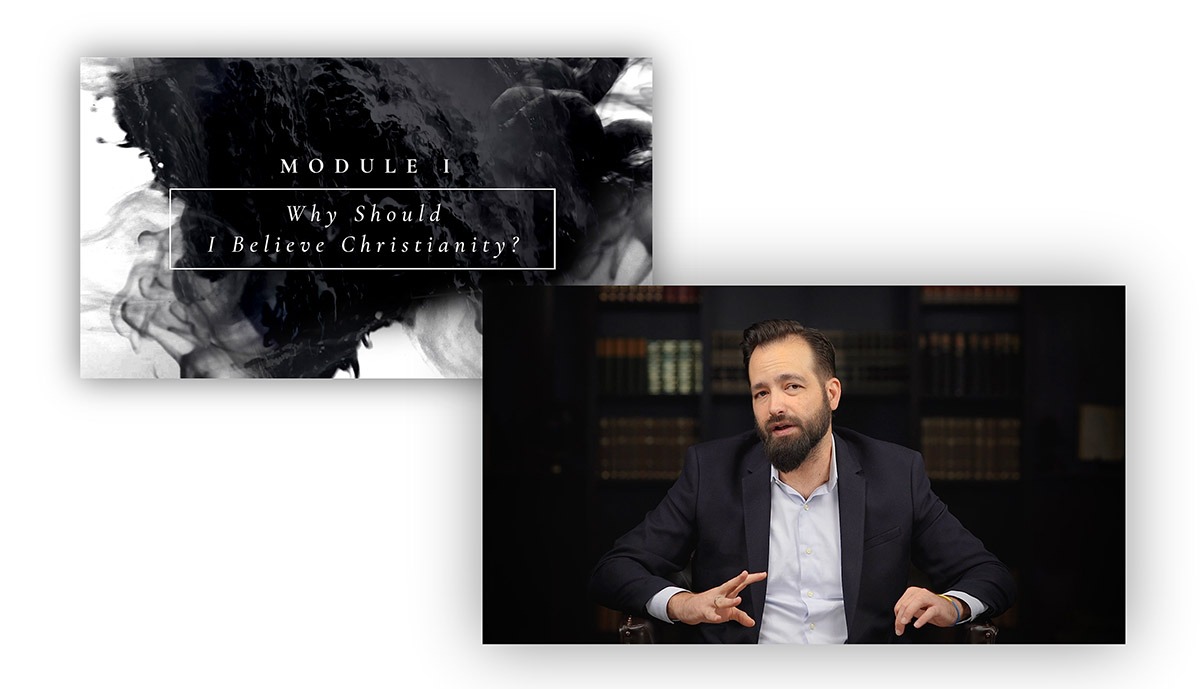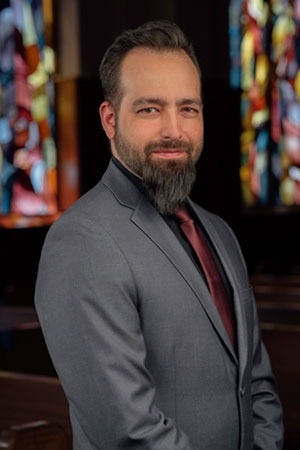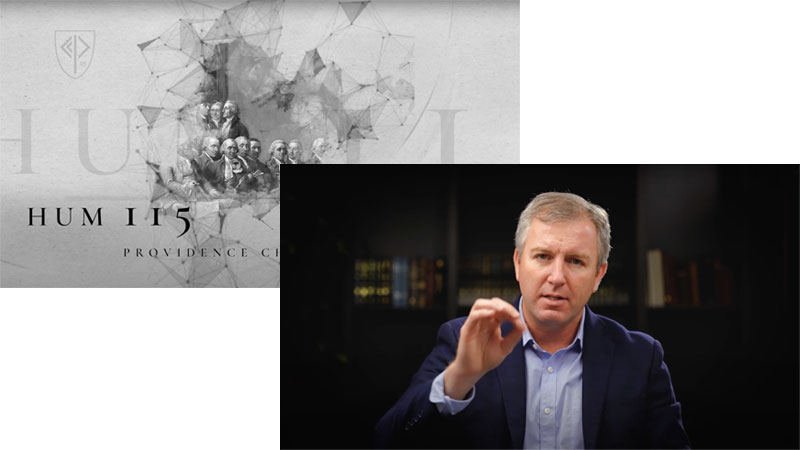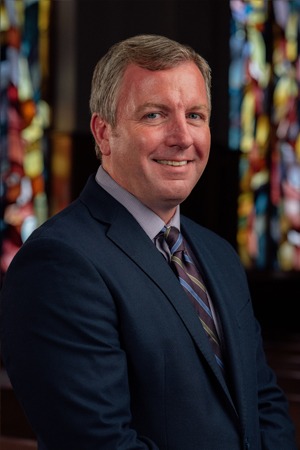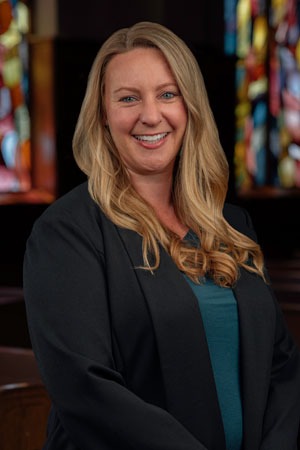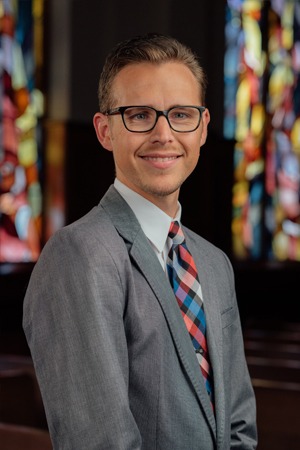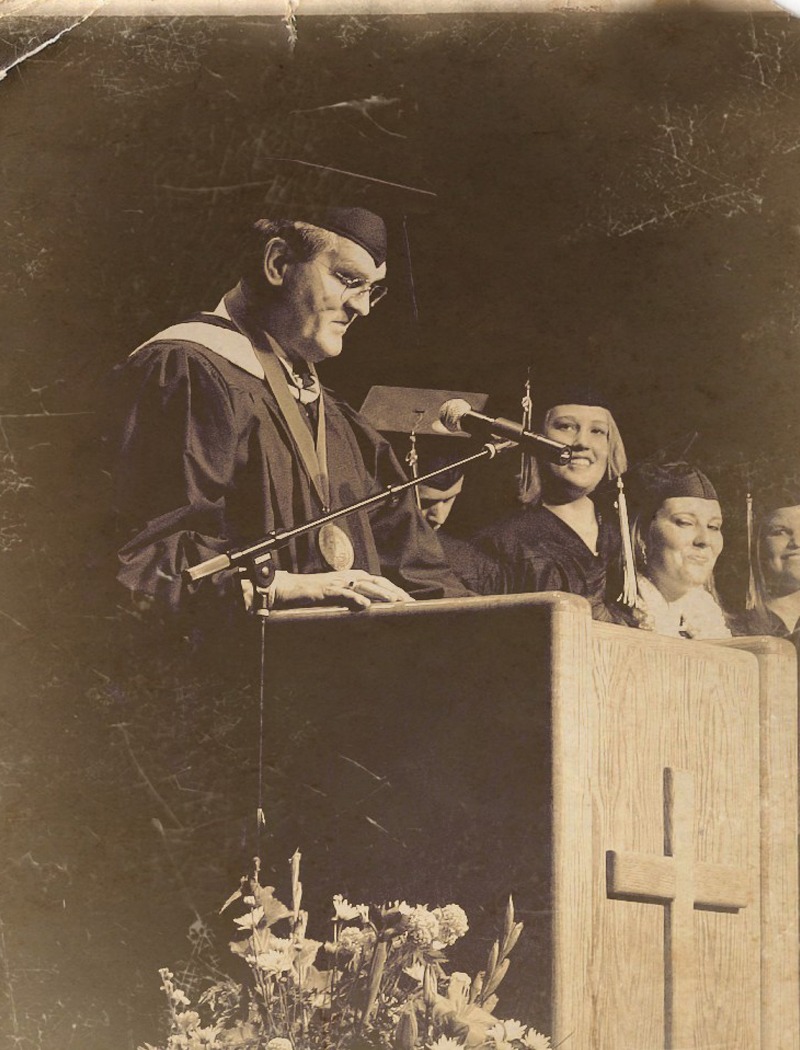The Liberal Studies major at Providence Christian College culminates in a capstone course. This course is designed to allow students to demonstrate their mastery of institution-wide learning outcomes as well as their achievement of competency in one or all of their chosen areas of concentration. This December staff, faculty, and community members gathered to hear four seniors present their semester-long research in their respective disciplines.
Capstones were presented in the areas of Biblical and Theological Studies, Visual and Performing Arts and Business, Economic, and Society. Andrew Bekkering presented his Biblical and Theological Studies research on the historical narrative of Genesis 1. Bekkering argued that there is a good and valid argument for a 24-hour view of creation and began his presentation by stating “I am going to give you a biblically sound and scientifically plausible explanation of the six, twenty-four, days of creation.” Bekkering argued that Genesis 1 must be read connected to Genesis 2, which therefore demands the creation account to be read as a literal narrative. After engaging several scientific arguments and theories on the connection between ANE texts and the Genesis 1 account Andrew concluded with Hebrews 11:3 and stated ” The reading of Genesis 1 has an impact on the reading of the rest of scripture, here is where the main characters are introduced and if they are seen improperly, their image will be blurred throughout the rest of the Bible.”
Mary Mother of God: New Eve, Christian Disciple, and Image of the Church was the title of Noah Shepherd’s capstone which studied the theology of Mary. Shepherd’s purpose was to better appreciate Mary’s place in Redemptive history, “something Protestant’s are hesitant to do” Shepherd stated. Shepherd connected Mary to the New Eve, as the instrument through which the promised seed came to redeem His people and crush the serpent’s head. “If Mary is the New Eve,” Shepherd continued, “we can connect Mary to the church because the church is the New Eve as the virgin bride of the New Adam.”
Carrie Thibault presented the first Visual and Performing Arts capstone of the day with her research on accompanying pianists versus soloing pianists. “My research was done to help pianists become better accompanists. Most piano students are only taught how to be soloists, even though nearly all pianists will eventually accompany someone in their life,” said Thibault. Her study clarified the different techniques, skills, and styles used in accompanying from what solo pianists are accustomed to. Interviews were conducted with three pianists who have much experience in both accompanying and in giving solo concerts in order to understand how accomplished keyboardists differentiate these styles of performing in their own work. Thibault concluded that although accompanists are often looked down upon as second-rate pianists, their job is not an easier task than soloists, simply a very different one. Thibault was able to put her research into practice for her audience when she played two pieces, one solo, and one accompanying music professor Christina Bristow.
The Business, Economics, and Society concentration requires students to create a profitable business plan for a business of their choice. Cody Walters’ proposal for Wolfe Tap House, “a brew of the new, the old and the nostalgic” took a look at profit and loss projections, opening day balance sheets as well as a 12-month cash flow statement to determine whether his business would be profitable. Walters did extensive research on the location and market for his consumer base and presented his vision for the mission of Wolfe Tap House as a brewery which uses high quality ingredients and promotes fair work practices and a friendly environment.
While the capstone course may not be completely unique to Providence, it remains one of the most important pieces of the holistic education students receive as they complete their final semesters and look towards their career after graduation. The Capstone synthesizes many of the core abilities and learning outcomes that Providence desires for graduates through the rigorous liberal arts academic program.
